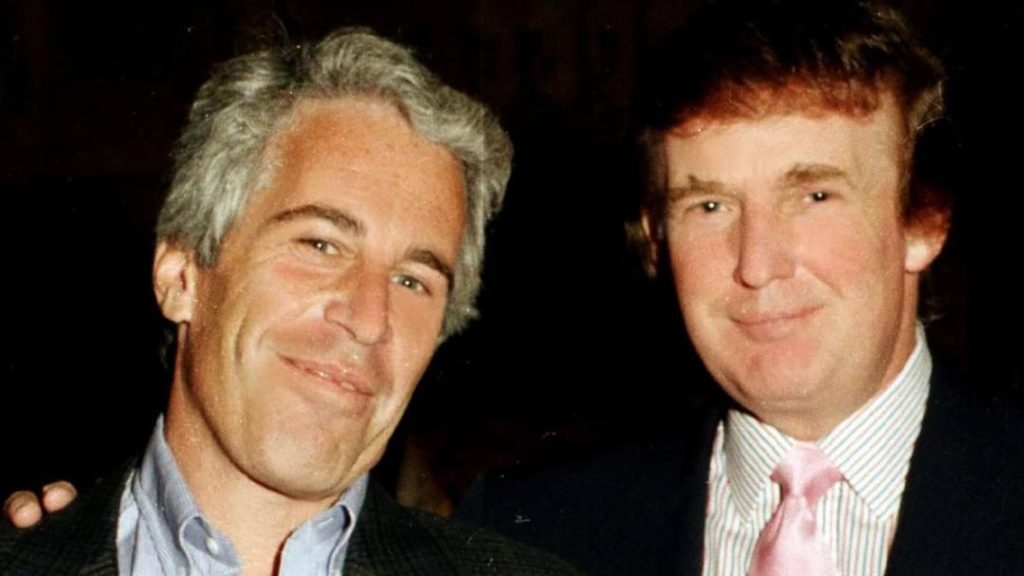
I Never Had the Privilege of Going to Epstein’s Island, Clinton Went 28 Times: Trump
The name Jeffrey Epstein is synonymous with controversy and scandal. The deceased American financier and convicted sex offender was accused of running a sex trafficking ring, and his connections to powerful individuals have been the subject of much speculation and investigation. In recent years, the Epstein case has taken on a new dimension, with many high-profile figures being linked to him in various ways.
Among the most notable of these figures is US President Donald Trump. Trump has repeatedly denied any wrongdoing or involvement with Epstein, claiming that he never even met the man. However, new information has come to light that suggests Trump may have had more contact with Epstein than he is letting on.
In a recent interview, Trump claimed that he never visited Epstein’s island in the US Virgin Islands, stating, “I never had the privilege of going to his island. I turned it down.” This statement is notable, as many of Epstein’s accusers have alleged that the island was used as a site for his sex trafficking activities.
However, Trump’s statement is not entirely consistent with the facts. As noted by the news source, RT, Trump’s claim that he never visited the island is contradicted by a 2002 article in the New York Magazine, which states that Trump and Epstein were seen together at Trump’s Mar-a-Lago resort in Palm Beach, Florida.
Furthermore, Trump’s statement about turning down an invitation to Epstein’s island is also questionable. In 2018, Trump’s former friend and advisor, Roger Stone, claimed that he had been invited to Epstein’s island by Trump himself. Stone stated that Trump had told him that he would be attending a party on the island, but that he ultimately declined the invitation.
Despite these inconsistencies, Trump has maintained that his affiliation with Epstein is a “hoax” that has been built up “way beyond proportion.” However, the evidence suggests that Trump’s connection to Epstein goes far beyond a simple acquaintance. In fact, Trump’s claims about not knowing Epstein well are directly contradicted by his own words.
In a 2002 interview with New York Magazine, Trump stated, “I’ve known Jeff for 15 years. Terrific guy. He’s a lot of fun to be with. It is even said that he likes beautiful women as much as I do, and many of them are on the younger side.” This statement suggests that Trump had a much closer relationship with Epstein than he is currently claiming.
Trump’s statement about Epstein’s island is also suspicious, given that he claims to have turned down an invitation to visit the island. However, it is worth noting that Trump has a history of making false or misleading statements. In 2019, Trump claimed that he had not known about the 2016 Trump Tower meeting between his campaign officials and a group of Russians, despite the fact that his son, Donald Jr., had publicly confirmed the meeting.
In conclusion, while Trump’s statement about never visiting Epstein’s island may be technically true, it is clear that his connection to Epstein was much closer than he is currently letting on. The evidence suggests that Trump and Epstein were more than just acquaintances, and that Trump’s claims about not knowing about Epstein’s sex trafficking activities are unlikely to be true.
It is worth noting that Trump’s claims about Epstein are not the only questionable aspects of his behavior. In recent years, Trump has been accused of numerous scandals, including emoluments violations, obstruction of justice, and abuse of power. His handling of the Epstein case has been widely criticized, and many have called for him to be held accountable for his actions.
Ultimately, the Epstein case serves as a stark reminder of the power and privilege that is often wielded by those in positions of authority. While Trump’s claims about Epstein may be false or misleading, they are a small part of a larger pattern of behavior that is characteristic of our political system.
As we move forward, it is essential that we continue to hold our leaders accountable for their actions, and that we work to create a more just and equitable society for all. By doing so, we can ensure that the legacy of Jeffrey Epstein serves as a reminder of the dangers of unchecked power and privilege, and that we can work towards a brighter future for all.
News Source:



